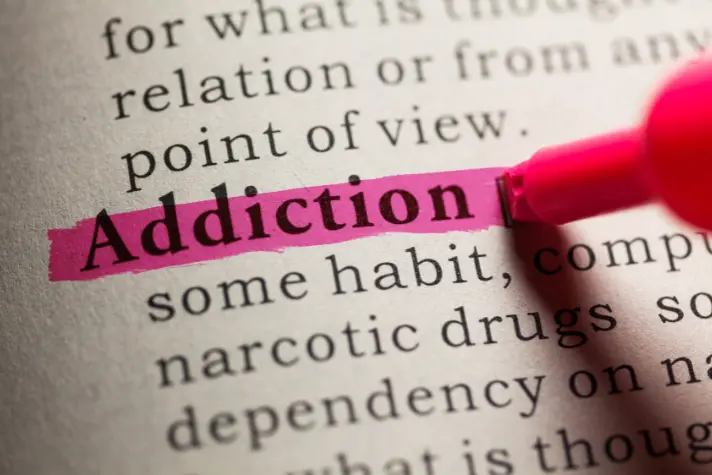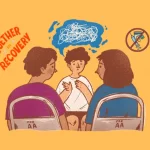
Embarking on the delicate journey of acknowledging and handling addiction within families demands a nuanced approach.
Addiction, a formidable adversary, can cast a shadow over the intricate dynamics of familial ties, necessitating astute recognition and proactive strategies. This comprehensive guide will delve into an extensive array of invaluable tips, encompassing more than 800 words, on how to recognize and address addiction within families adeptly.
Hoping to provide you with the knowledge and skills essential for handling this delicate situation with compassion, understanding, and fortitude, nuanced insights are offered.
Understanding the Signs of Addiction
Recognition of addiction within families demands more than just cursory attention; it requires a heightened awareness of nuanced behavioral changes and subtle cues that may indicate a loved one is grappling with the insidious nature of substance abuse.
It is paramount to stay keenly attuned to subtle alterations in mood, social patterns, and overall lifestyle, as these can serve as potent indicators of an underlying struggle.
Encouraging Professional Treatment
Encourage your family members to consider the diverse and tailored programs offered by different reputable detox centers in Ohio or your area. These facilities not only prioritize physical detoxification but also provide comprehensive support to address the underlying psychological aspects of addiction.
By embracing professional treatment, your loved one can access a structured and personalized recovery journey, increasing the likelihood of sustainable and long-term positive outcomes.
Observing Behavioral Shifts

Be particularly vigilant about abrupt and pronounced shifts in behavior, such as heightened secrecy, pronounced mood swings, or unexplained absences.
These behavioral metamorphoses may signify an individual’s concerted efforts to conceal the clutches of addiction.
By staying consistently observant and deciphering patterns, you can unveil the subtleties that point to an underlying issue requiring your thoughtful attention.
Communication: The Foundation of Recognition
At the heart of addressing addiction within families lies the bedrock of open and honest communication.
Creating an environment where family members not only feel encouraged but also comfortable discussing their concerns, liberated from the looming fear of judgment, is an essential starting point.
Regular discourse opportunities create an environment in which people feel free to express their opinions and feelings without fear of repercussions.
Educating Yourself on Addiction

Empowering one with a comprehensive understanding of addiction, encompassing its intricate causes and profound effects, is a pivotal step on this journey.
Armed with knowledge, stereotypes can be dismantled, and empathy can be fostered within the family.
Fostering a caring and encouraging environment requires acknowledging addiction as a medical illness as opposed to a moral failing.
Seeking Professional Guidance
In moments of uncertainty, seeking the counsel of addiction specialists or healthcare professionals is not just advisable but imperative.
Their knowledge can offer priceless perceptions and direction on identifying the warning indications of addiction in families.
Moreover, these professionals can offer informed advice on appropriate interventions and point towards available resources, including reputable detox centers that can play a pivotal role in the recovery journey.
Addressing Addiction Through Compassion and Empathy
Approaching the issue with an abundance of compassion and empathy is fundamental to fostering a supportive family environment during the tumultuous journey of addiction.
The avoidance of blame and criticism, coupled with a laser focus on expressing genuine concern and offering assistance, sets the stage for profound healing.
Demonstrating empathy not only creates a foundation for recovery but also encourages the afflicted individual to seek the help they need willingly.
Conducting a Family Intervention

Consider the possibility of organizing a family intervention, a poignant gathering that serves to express collective concern and encourage the individual to take the pivotal step of seeking treatment.
Professional interventionists can facilitate this intricate process, ensuring that communication remains constructive, focused, and geared toward the well-being of the individual.
Establishing Boundaries
Setting clear, firm boundaries is crucial in communicating the family’s unwavering commitment to supporting the recovery journey.
These boundaries serve as a framework for curtailing enabling behaviors and clearly articulating the consequences of continued substance abuse.
This approach not only fosters accountability but also serves as a powerful motivator for the individual to seek professional help actively.
Conclusion
In conclusion, recognizing and addressing addiction within families is a collective and intricate effort that demands understanding, empathy, and proactive intervention.
By maintaining unwavering vigilance, fostering open communication, and seeking the guidance of professionals, families can adeptly navigate the multifaceted challenges of addiction.
Remember, supporting a loved one through their arduous journey to recovery stands as a poignant expression of familial strength and resilience, forging a path toward lasting well-being.
As you embark on this journey, know that your commitment to understanding and addressing addiction within your family can pave the way for a future marked by strength, healing, and enduring familial bonds.
About The Author:
Stacey Smith is a freelance health writer. She is passionate about writing about women’s health, dental health, diabetes, endocrinology, and nutrition and provides in-depth features on the latest in health news for medical clinics and health magazines.




